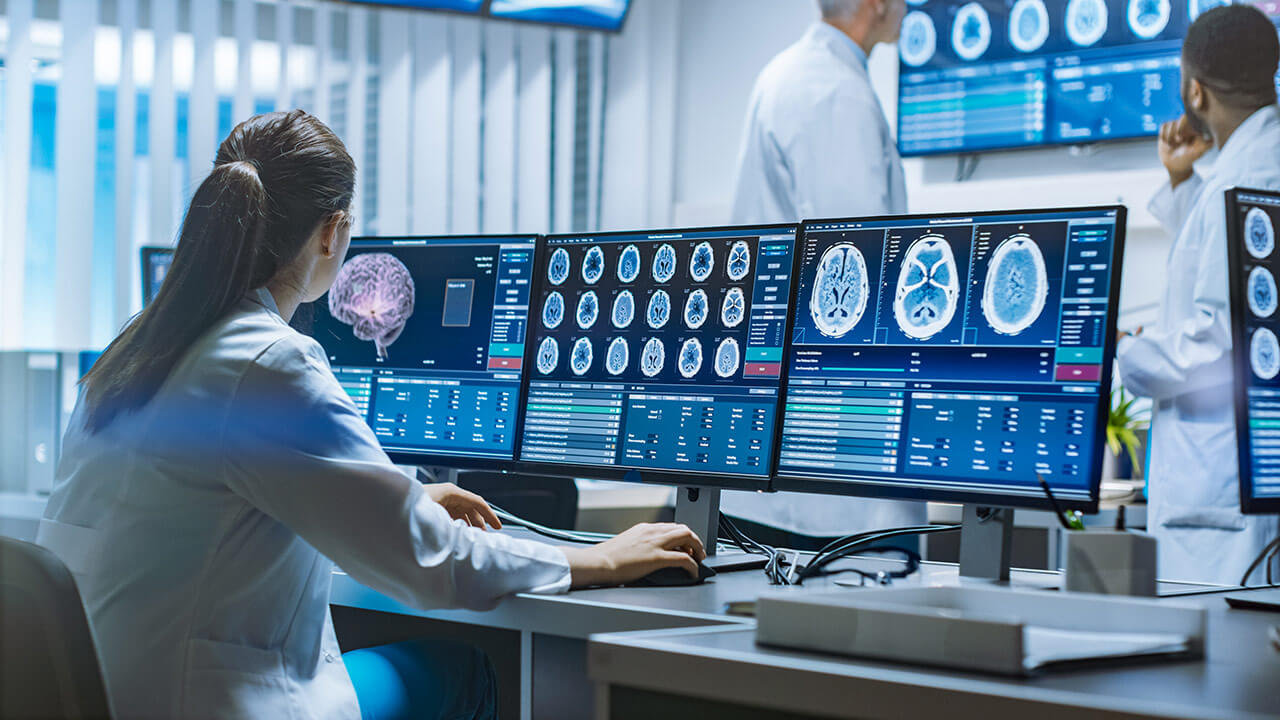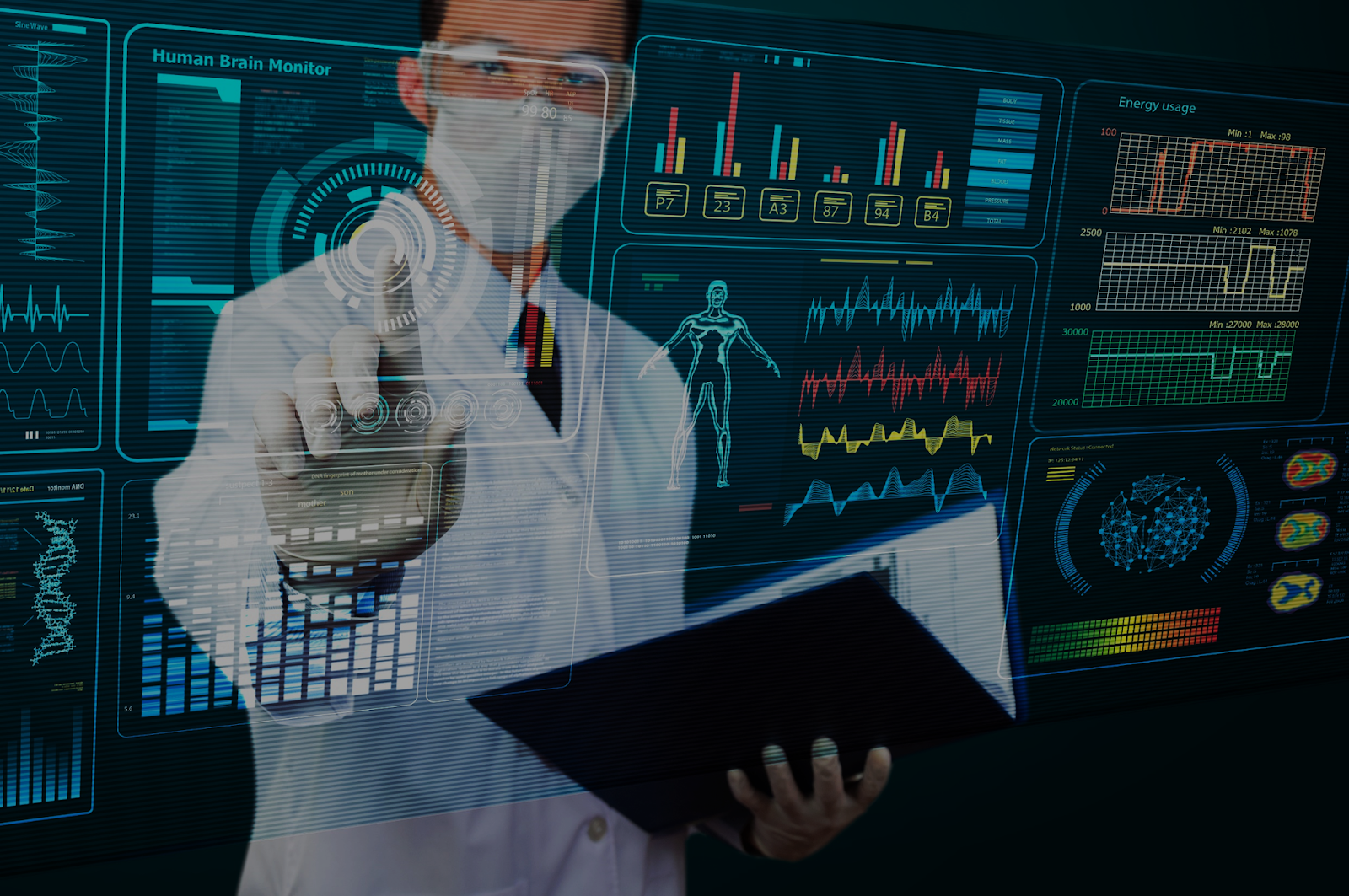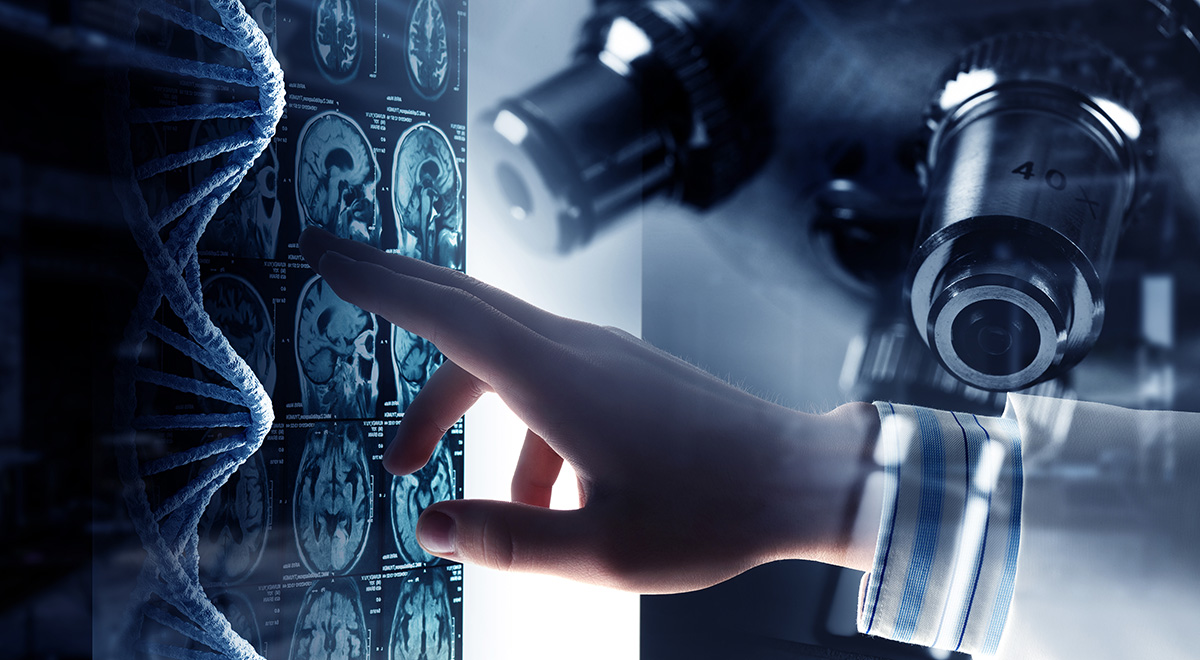
Introduction:
Machine Learning (ML) has emerged as a Healthcare transformative force in the healthcare industry, revolutionizing the way we approach disease diagnosis, treatment, and patient care. In recent years, significant breakthroughs and applications of ML in healthcare have opened new avenues for disease prediction, personalized medicine, and medical image analysis. In this blog, we will explore the latest advancements, breakthroughs, and diverse applications of machine learning in healthcare, shedding light on how these innovations are shaping the future of medical practices.
Machine Learning in Healthcare: An Overview
1. Disease Prediction and Prevention:
a. Early Detection of Diseases:
Machine Learning models are being employed to analyze vast datasets, including electronic health records (EHRs), genetic information, and lifestyle factors, to predict the likelihood of diseases such as diabetes, cardiovascular conditions, and various cancers. Early detection allows for timely intervention and improved treatment outcomes.
b. Risk Stratification:
ML algorithms can stratify patients based on their risk profiles, aiding providers in identifying individuals at higher risk of specific diseases. This personalized approach enables targeted preventive measures and interventions to reduce the overall disease burden.
2. Personalized Medicine:
a. Genomic Medicine:
ML is playing a pivotal role in genomic medicine by analyzing genetic data to identify patterns and variations associated with diseases. This enables the development of personalized treatment plans based on an individual’s genetic makeup, leading to more effective and tailored therapies.
b. Drug Discovery and Development:
ML algorithms are accelerating the drug discovery process by analyzing vast datasets to identify potential drug candidates, predict their efficacy, and optimize formulations. This data-driven approach expedites the development of new therapies and reduces the time and resources traditionally required for drug discovery.
3. Medical Image Analysis:
a. Radiology and Pathology:
Machine Learning is transforming medical imaging by enhancing the accuracy and efficiency of radiological and pathological assessments. Image recognition algorithms can assist radiologists in detecting abnormalities in X-rays, MRIs, and CT scans, leading to quicker and more precise diagnoses.
b. Histopathology Analysis:
ML models are applied to analyze histopathological images, aiding pathologists in identifying and characterizing cancerous tissues. This improves diagnostic accuracy and enables a more nuanced understanding of disease pathology, contributing to better treatment strategies.
4. Predictive Analytics and Population Health:
a. Resource Allocation:
ML algorithms analyze population health data to predict disease trends and allocate healthcare resources effectively. This proactive approach assists healthcare providers in preparing for potential outbreaks, managing chronic conditions, and optimizing healthcare delivery.
b. Patient Readmission Prediction:
Machine Learning models leverage patient data to predict the likelihood of hospital readmission. By identifying high-risk individuals, providers can implement targeted interventions and post-discharge care plans, reducing the risk of readmission and improving patient outcomes.
Recent Breakthroughs in Machine Learning for Healthcare:

1. Deep Learning in Medical Imaging:
Breakthroughs in deep learning architectures, such as convolutional neural networks (CNNs) and recurrent neural networks (RNNs), have significantly improved the accuracy of medical image analysis. These models excel in tasks such as tumor detection, organ segmentation, and anomaly identification in various medical imaging modalities.
2. Natural Language Processing (NLP) for EHRs:
Natural Language Processing techniques are being applied to Electronic Health Records (EHRs) to extract valuable insights from unstructured clinical notes and medical narratives. This enables comprehensive patient profiling, facilitating personalized treatment plans and risk prediction.
3. Explainable AI in Healthcare:
The development of Explainable AI (XAI) techniques is addressing the interpretability and transparency challenges associated with complex ML models. In healthcare, explainable models are crucial for gaining the trust of healthcare professionals and ensuring the responsible deployment of machine learning algorithms in clinical settings.
4. Federated Learning for Collaborative Research:
Federated Learning is gaining prominence in research, allowing institutions to collaborate on model training without sharing sensitive patient data. This decentralized approach preserves privacy while enabling the collective improvement of models for disease prediction, drug discovery, and treatment optimization.
Applications of Machine Learning in Healthcare:
1. Remote Patient Monitoring:
ML-powered wearable devices and remote monitoring systems continuously collect and analyze patient data. These systems can detect anomalies, monitor vital signs, and provide early warnings, enabling healthcare providers to intervene promptly and improve patient outcomes.
2. Diabetes Management:
ML algorithms analyze data from continuous glucose monitoring devices, insulin pumps, and patient-reported metrics to personalize diabetes management plans. This data-driven approach helps optimize insulin dosages, predict blood sugar fluctuations, and enhance overall diabetes care.
3. Cardiovascular Risk Assessment:
ML models assess various risk factors, including genetic predisposition, lifestyle factors, and medical history, to predict an individual’s cardiovascular risk. This aids in early intervention and the implementation of preventive measures to reduce the risk of heart diseases.
4. Telemedicine and Virtual Health Assistants:
ML-driven virtual health assistants use natural language processing to interact with patients, answer health-related queries, and provide information on symptoms and medications. Additionally, telemedicine platforms leverage ML for remote consultations, diagnosis, and treatment planning.
5. Mental Health Diagnosis and Monitoring:
ML models analyze speech patterns, text data, and physiological signals to assist in the diagnosis and monitoring of mental health conditions. These applications contribute to the development of personalized treatment plans and early intervention strategies.
Challenges and Considerations:
1. Data Quality and Standardization:
Ensuring the quality and standardization of healthcare data is crucial for the effective training of ML models. Variability in data formats, missing values, and inconsistencies can impact model accuracy and generalizability.
2. Interoperability and Integration:
Healthcare systems often use diverse technologies and platforms that may not seamlessly integrate. Ensuring interoperability and efficient integration of ML solutions into existing healthcare infrastructures pose challenges that need to be addressed for widespread adoption.
3. Regulatory Compliance and Ethics:
Compliance with healthcare regulations, such as the Health Insurance Portability and Accountability Act (HIPAA), is paramount. Ethical considerations, including patient consent, data privacy, and responsible use of AI, must be carefully addressed to maintain public trust.
4. Bias and Fairness:
ML models trained on biased datasets may perpetuate existing disparities in. Addressing bias and ensuring fairness in algorithms is crucial to avoid unintended consequences and disparities in diagnosis, treatment, and patient outcomes.
Future Outlook:

1. Continuous Advancements in Deep Learning:
Ongoing advancements in deep learning architectures and techniques will further enhance the capabilities of machine learning models in healthcare. Improved image analysis, natural language understanding, and feature extraction will contribute to more accurate and robust healthcare applications.
2. Integration of Multi-Modal Data:
The integration of diverse data types, including genomics, imaging, clinical records, and patient-reported data, will enable comprehensive patient profiling. Machine learning models capable of processing multi-modal data will provide a holistic view for more personalized and effective healthcare interventions.
3. Human-AI Collaboration:
The future of healthcare will see increased collaboration between professionals and AI systems. Augmented intelligence, where AI complements human expertise, will become integral to clinical decision-making, enabling more accurate diagnoses and treatment planning.
4. Global Collaboration in Research:
Collaborative research efforts across institutions and countries will accelerate the development of machine learning models in healthcare. Federated learning and secure data sharing frameworks will facilitate global collaboration, leading to more robust and generalizable models.
Conclusion:
Machine Learning is revolutionizing healthcare by ushering in a new era of personalized medicine, improved diagnostics, and proactive disease management. From predicting disease risks to tailoring treatment plans based on individual genetic profiles, the applications of ML in healthcare are diverse and promising. As breakthroughs continue and challenges are addressed, the integration of machine learning into everyday clinical practice will become increasingly prevalent. The journey of machine learning in healthcare is not just a technological advancement; it is a paradigm shift that holds the potential to enhance patient outcomes, streamline healthcare delivery, and ultimately transform the way we approach health and wellness.
